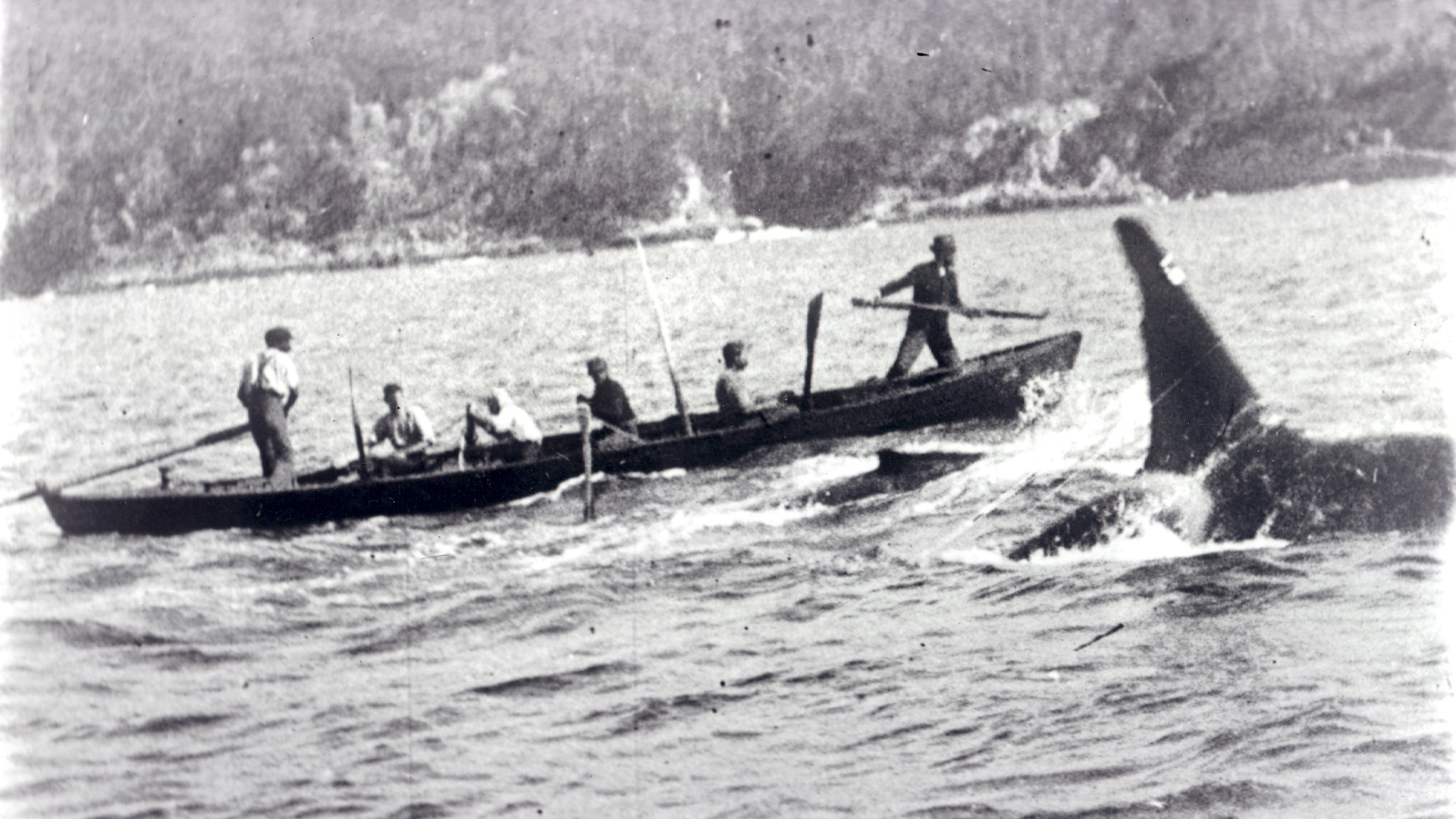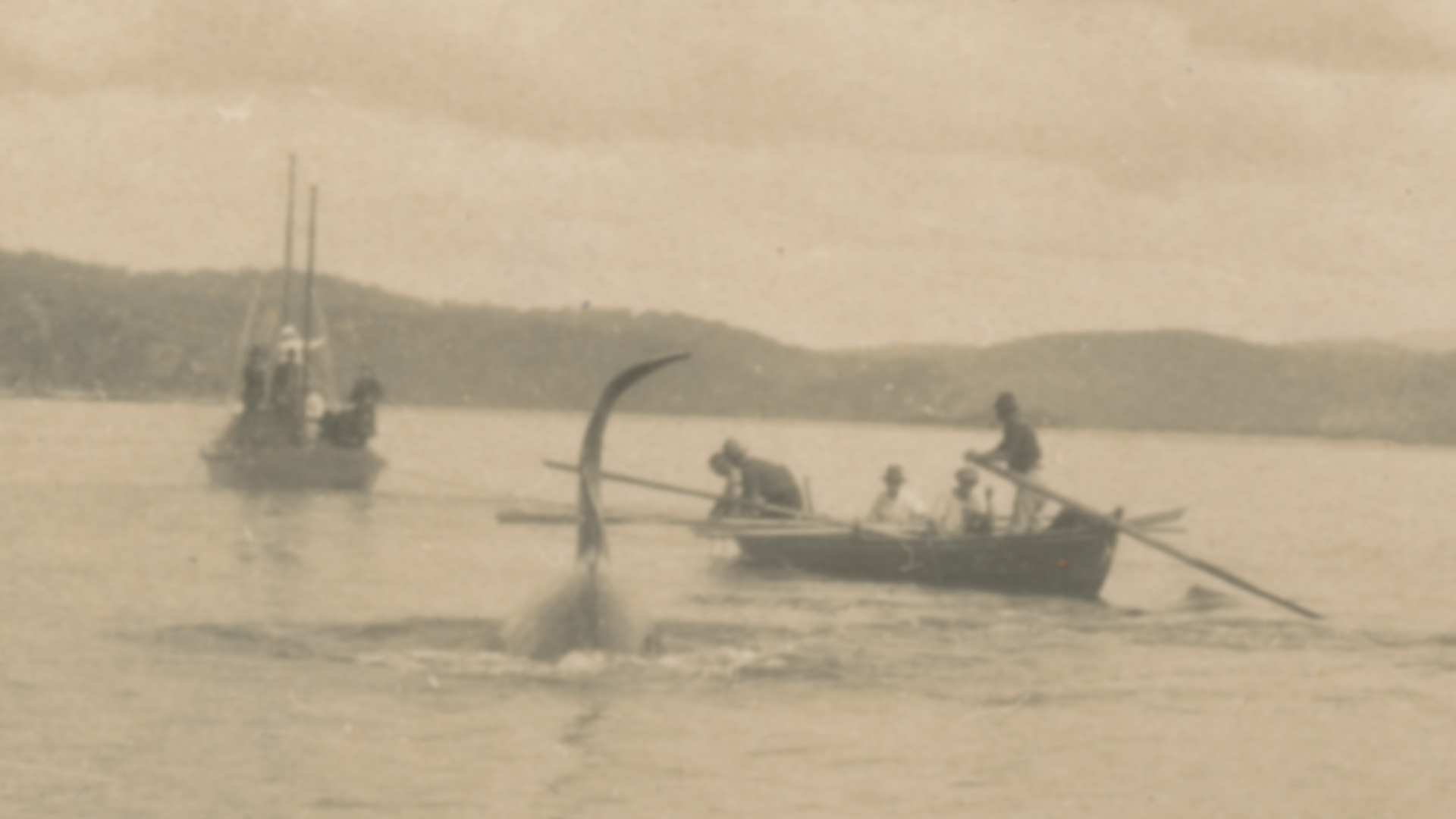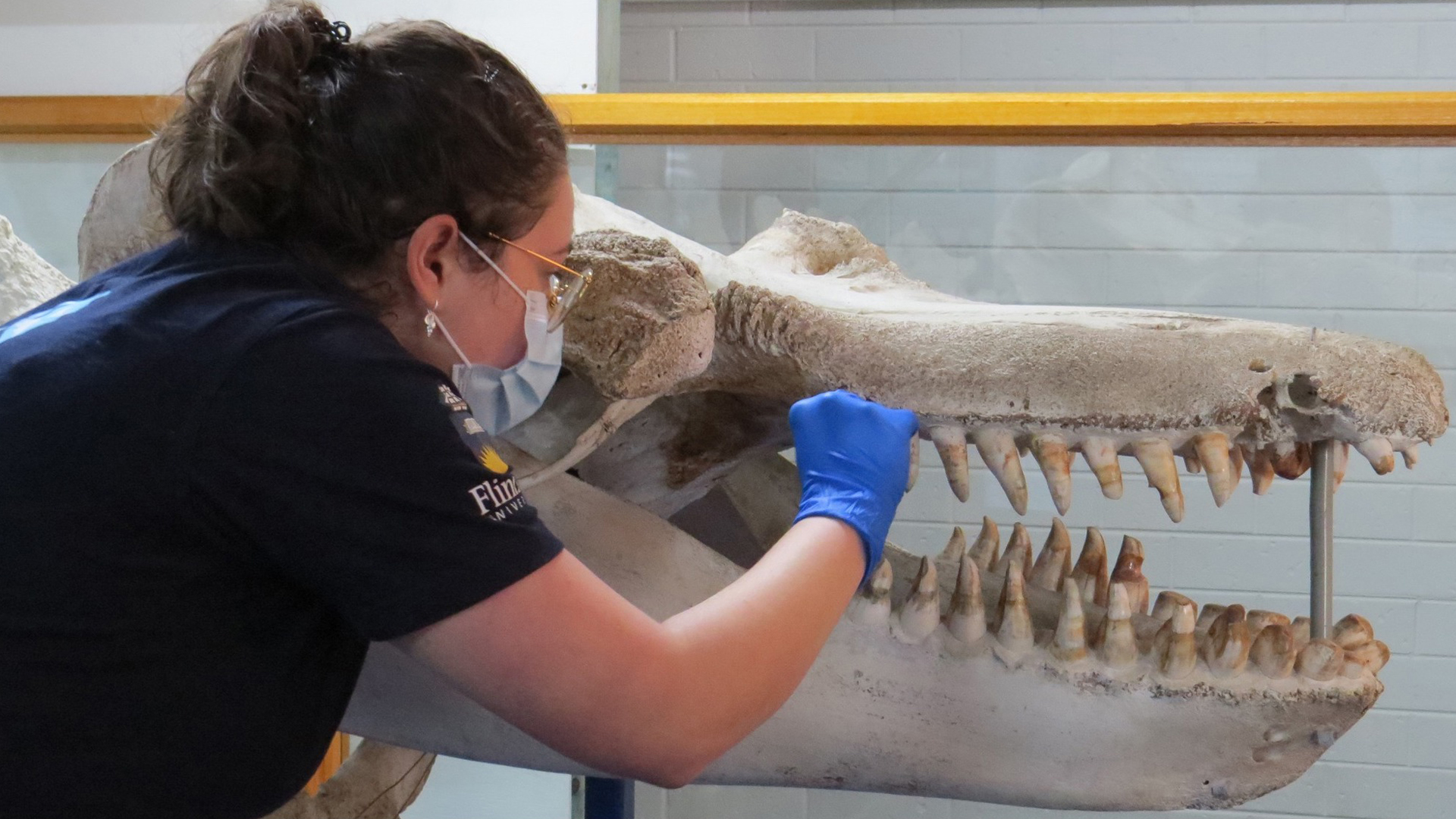Orcas that hunted alongside humans might be extinct
Researchers used DNA analysis and traditional knowledge to learn about an orca named Old Tom and his family's remarkable relationship with humans.

A mysterious population of orcas said to have hunted alongside Indigenous Australian whalers for millennia and European whalers for decades appears to be extinct, genetic analysis has revealed.
The coastal Thaua people, part of the Yuin nation, would sing to the beowas (orcas) as they hunted baleen whales together for generations in the bay of Turembulerrer (Twofold) off eastern Australia. Orcas took only the lips and tongue of slain whales in a mutually beneficial exchange called the "Law of the Tongue," according to a study published Oct. 12 in the Journal of Heredity.
In the 19th Century, European colonizers took advantage of this law to create a booming commercial whaling operation in the bay. Written records suggest orcas would slap the waters in front of the whaling station in the town of Eden to alert the whaling teams, which included Thaua people, to the presence of whales. The orcas are said to have led the whalers to the whales, sometimes by towing them on a rope, and manipulated the harpoon line to slow a snagged whale down and help secure the kill.
Related: Orcas are learning terrifying new behaviors. Are they getting smarter?
By the 1930s, after hunting with humans for 1,000 years, the population vanished.
To learn more about these orcas, researchers analyzed the DNA of a 23-foot-long (7-meter) orca (Orcinus orca) from this group called "Old Tom." His DNA proved different enough to living orcas to suggest that the whale-hunting population he belonged to is now extinct.
The study also tapped into traditional knowledge to learn more about the relationship between Indigenous Australians and the "killers of Eden." Study coauthor Steven Holmes, a Thaua Traditional Custodian, wrote in the study that the Thaua people consider beowas (orcas) to be their brothers, connected through Dreamtime stories that say when a Thaua member dies, they are reincarnated as a beowa.
Sign up for the Live Science daily newsletter now
Get the world’s most fascinating discoveries delivered straight to your inbox.
"My people had a long-lasting friendship with the beowa in Eden, especially Old Tom," Holmes said. "My Nan, Catherine Holmes nee Brierly, told us about her great Grandfather, Budginbro who along with other Thaua would swim with Old Tom, holding on to his dorsal fin, my ancestors were never hurt or injured."
Related: How often do orcas attack humans?

Old Tom washed up dead in 1930, and his skeleton is kept at the Eden Killer Whale Museum. Isabella Reeves, a doctoral candidate at Flinders University in Australia, led the new study, and went to the museum to drill Old Tom's teeth and jaw for DNA. They first established Old Tom was male. That's unusual for orcas given his active role in the whale hunts — research has found male orcas tend to let their moms do the hunting. "The males are really lazy and just like to look pretty, basically," Reeves said.
Old Tom likely shared a common ancestor with New Zealand orcas. However, much of the variation in Old Tom's genome isn't present in the recorded DNA of any living population, meaning it was likely lost through extinction, the researchers found.
Most orcas had left Eden by the time Old Tom died and all but disappeared soon after. Thaua whalers originally hunted alongside orcas for subsistence, but the method became commercial under the Europeans. "Up until the point that relationship was commercialized, it was going okay," Reeves said.
Exactly when and how the human-orca relationship started is unknown. Stories passed down from generation to generation suggest that the Thaua people and other Aboriginals hunted with the orcas long before the Europeans started employing them to help with commercial operations in the 19th Century.

"We're pretty confident it had been going on for thousands of years," Reeves said. "But how it started is another question. I think what I've learned from killer whales is that they're curious, they can be strategic and when they want something, they know how to get it."
Some orca populations hunt baleen whales and feast on their tongues, but these orcas tend to target whale calves. Reeves noted that the orcas of Eden took down adults with the whalers, something they'd struggle to do alone.
Reeves said she's not sure people would believe the orcas of Eden story if it weren't for the "mind-blowing" photographic evidence from the time. "To imagine that happening now almost seems impossible," she said.

Patrick Pester is the trending news writer at Live Science. His work has appeared on other science websites, such as BBC Science Focus and Scientific American. Patrick retrained as a journalist after spending his early career working in zoos and wildlife conservation. He was awarded the Master's Excellence Scholarship to study at Cardiff University where he completed a master's degree in international journalism. He also has a second master's degree in biodiversity, evolution and conservation in action from Middlesex University London. When he isn't writing news, Patrick investigates the sale of human remains.










